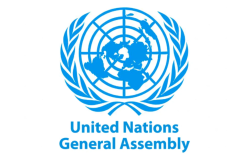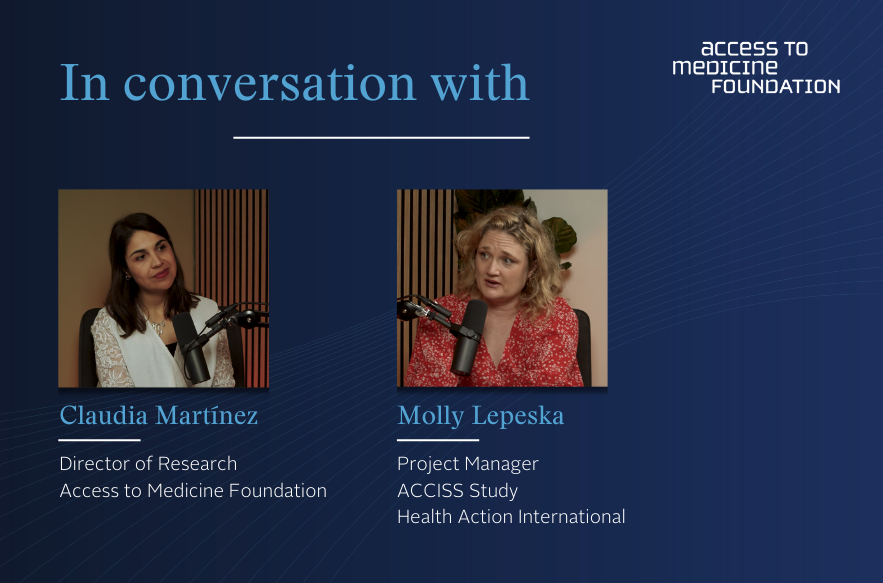Diabetes Care Programme
In conversation with Molly Lepeska, Project Manager at Health Action International
Claudia Martínez, the Foundation's Director of Research sits down with Molly Lepeska, Project Manager of the ACCISS Study at Health Action International, to discuss the persistent gaps in access to type 1 diabetes care in low- and middle-income countries and what it will take to deliver long-term, sustainable change.
Diabetes advocate Bridget McNulty shares why "collaboration is essential" to improving access to care in South Africa
Jayasree K. Iyer discusses access to diabetes care for children and young people on CNBC Africa
Not just about weight-loss drugs, companies need to do more for children and young people with type 1 diabetes
Diabetes is a growing issue, but access to treatment lags behind
Today, more than half a billion people around the world are living with diabetes, and this number is expected to hit three quarters of a billion in the next 20 years. Most of this increase will take place in low- and middle-income countries (LMICs). This rising disease burden threatens to put fragile healthcare systems under ever more strain.
Daily access to insulin is essential for survival for patients with type 1 diabetes, and also for many with type 2. Yet insulin products are often unavailable to the millions of people living with diabetes in LMICs – and when they are available, they may still be unaffordable. This is often compounded by a lack of access to other essential products for managing diabetes, such as blood glucose monitoring devices and testing strips.
With access to the right care, this chronic condition can be effectively managed. But until all people living with diabetes receive improved access to essential diabetes care, many more children and adults will experience adverse health outcomes or succumb to the disease.

What the 4th High-level Meeting (HLM) on NCDs should prioritise when engaging the pharmaceutical industry
Read moreThe global insulin market is dominated by a few key players
The insulin market is dominated by just a handful of major players. Together, Eli Lilly, Novo Nordisk and Sanofi control over 90% of the global insulin market by value and produce 83% of the insulin sold in LMICs.
In 2021, the World Health Organization (WHO) launched the Global Diabetes Compact, which identifies access to diagnostic tools and medicines – especially insulin – in LMICs as one of the most urgent areas where improvement is needed. The major producers of insulin therefore have a critical role to play in lifting the burden of diabetes for the world’s poorest citizens.
How we work to tackle the lack of access to diabetes products
Responding to the critical need to improve access to diabetes care in LMICs, we launched our dedicated stream of work on diabetes in 2022. It builds on the momentum of the Global Diabetes Compact and the WHO-spearheaded push to ensure that all people living with diabetes have access to quality care and treatment.
This stream of work draws on the Foundation’s proven experience of mobilising healthcare companies to drive the uptake of good practices and builds on our existing work on access to diabetes care. Since our first Access to Medicine Index was launched in 2008, we have included key medicines for diabetes, such as insulin, in our assessment of how pharmaceutical companies perform on ensuring access to essential products in LMICs.
Looking ahead, we will continue to use a blend of research and stakeholder dialogue to identify solutions for companies to expand access to insulin and diagnostics, informed by an in-depth assessment of current approaches.
Sharing insights and identifying solutions
In May 2025, we released a report outlining the efforts from four companies – Biocon Limited, Eli Lilly and Company, Novo Nordisk and Sanofi – to address access challenges in diabetes care for children and young people (CYP) living with type 1 diabetes (T1D) in LMICs. It assessed initiatives specifically targeting CYP, looking at where they are active, what products and services they provide and how they are aiming to make diabetes care more sustainable and affordable.
The report showed that these initiatives are often the only means of delivering care tailored to the unique needs of CYP living with T1D, making them a vital lifeline for many. However, despite the wide geographic coverage of these initiatives and the range of products and support they offer, they are only able to reach a fraction of those in need. To help companies scale access to diabetes care products, the report identifies key strengths and areas for improvement, offering valuable insights for companies to learn from existing initiatives and enhance their expansion strategies.
The report received global media coverage, with features in leading outlets such as Bloomberg (USA), Express Pharma (India), and Pharma Boardroom (UK). To translate the report’s insights into meaningful impact, we are actively engaging with pharmaceutical companies, investors and global health policymakers.
In a previous report published in October 2022, we also detail the efforts of the same major insulin manufacturers to address access to diabetes care in LMICs and highlight what still needs to be done. The report found a range of strategies that were being used to expand access to the companies’ products, including insulin donation programmes, training programmes and access-focussed pricing strategies.
However, these efforts do not yet address access issues at the scale necessary to change the overall picture. For example, the data showed an urgent need for companies to register their insulin products more widely with regulatory authorities in LMICs. The report also identified opportunities for companies to pursue more systematic and sustainable approaches, and to address affordability issues and supply chain challenges.
The report was covered by leading outlets around the world, including Stat (USA), MO* (Belgium), Vanguard Nigeria, Forbes Mexico and The Hindu (India).
Also central to our changemaking strategy is the Foundation’s ability to bring a range of key stakeholders together for dedicated roundtables and workshops to share insights and build consensus.
In July 2022, we launched our first "Amsterdam Session," bringing together industry leaders, public sector partners, global health organisations and experts who operate on the ground in LMICs to discuss practices and solutions for closing the gaps in access to diabetes care. This inaugural session set the stage for ongoing dialogue and action, and since then, the Foundation has hosted two additional sessions in 2023 and 2024.
The most recent one, held in April 2024, was titled “Securing worldwide access to diabetes care by 2030: Spotlight on strategies and solutions to close the equity gap.” Following this event, the Foundation published a comprehensive report outlining actionable next steps and recommendations for the private sector and other stakeholders to sustainably ensure that insulin, glucose monitoring devices and other essential commodities reach people living with diabetes in LMICs.
In the coming years, we will continue to expand our efforts to move essential healthcare companies on access to diabetes care. In this way, we can help make diabetes manageable for those living with the condition worldwide.


